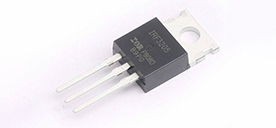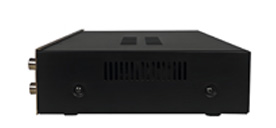Smart medical innovation: humanized service and deep intelligence integration
2024/2/29 9:50:45
Views:
From the perspective of policy prospects, my country's medical services have achieved rapid development. However, they still face many challenges and there is still a long way to go before a fully intelligent smart medical system. In the future, it can be expected that the country will introduce more plans and policies to promote the development of smart medical care and push it to a higher level.
Mobile medical care plays an important role in my country's medical and health system. In recent years, driven by factors such as mobile Internet technology and big data technology, mobile medical care has developed rapidly.
Although smart medicine has made progress in various aspects, it still faces many challenges. On the one hand, smart medical care is still in its infancy and needs to go hand in hand with policies, mechanisms, and technological innovation; on the other hand, the registration cycle for innovative products in smart medical care is long, which to a certain extent delays the commercialization process of the products and creates problems for them. Startups bring challenges.
With the continuous advancement of technology, many successful application cases of smart medicine have emerged in the medical and health field, such as auxiliary disease diagnosis, health management, medical imaging, clinical decision support, portable equipment, rehabilitation medicine and biomedical research, etc. However, compared with international levels, my country still has gaps in big data technology, artificial intelligence technology, medical robots and wearable devices.
Smart medical care is the ultimate goal of the traditional medical system to move toward digitalization, intelligence, and modernization. It is expected to improve the medical service experience and improve medical efficiency and quality. However, because artificial intelligence medical technology is still in the development stage, people's awareness and acceptance of it need to be improved, which has caused a series of problems and challenges in the implementation of smart medical care. For example, the various artificial intelligence algorithm technologies used in smart medical care are very complex, and it is often difficult for medical staff and patients to understand their analysis results, which raises doubts about the accuracy of AI service results for medical staff and patients. To solve this problem, it is necessary to strengthen the training of medical staff and patients to explain the functions, principles, accuracy and limitations of AI services in an easy-to-understand manner.
Smart medical care is an important component of smart city strategic planning and an important engine for people's livelihood, economic development and industrial upgrading. It comprehensively uses emerging information technologies such as big data, cloud computing, Internet of Things, and mobile Internet to innovate health management and service models and build a comprehensive medical health monitoring and service system. The application of IoT technology in the medical field can not only realize intelligent medical care for people, but also provide support for intelligent management of things, thus promoting the development and promotion of smart medical care.
The security protection system of smart medical care mainly includes six aspects: physical security, network security, host security, application security, data security and security management to ensure the overall security of the smart medical system. Through multi-level and multi-faceted technical means and methods, comprehensive security protection and monitoring management are achieved to ensure the safe operation of the smart medical system.
In terms of cloud computing in the medical industry, patients' electronic medical records and examination information are stored on a central server, and medical staff can obtain relevant information in real time through the Internet. The application of cloud computing technology has greatly changed the way of medical informatization, reduced the cost of information system construction, provided more personalized services to medical institutions, and promoted the in-depth development of smart medical care.
Mobile medical care plays an important role in my country's medical and health system. In recent years, driven by factors such as mobile Internet technology and big data technology, mobile medical care has developed rapidly.
Although smart medicine has made progress in various aspects, it still faces many challenges. On the one hand, smart medical care is still in its infancy and needs to go hand in hand with policies, mechanisms, and technological innovation; on the other hand, the registration cycle for innovative products in smart medical care is long, which to a certain extent delays the commercialization process of the products and creates problems for them. Startups bring challenges.
With the continuous advancement of technology, many successful application cases of smart medicine have emerged in the medical and health field, such as auxiliary disease diagnosis, health management, medical imaging, clinical decision support, portable equipment, rehabilitation medicine and biomedical research, etc. However, compared with international levels, my country still has gaps in big data technology, artificial intelligence technology, medical robots and wearable devices.
Smart medical care is the ultimate goal of the traditional medical system to move toward digitalization, intelligence, and modernization. It is expected to improve the medical service experience and improve medical efficiency and quality. However, because artificial intelligence medical technology is still in the development stage, people's awareness and acceptance of it need to be improved, which has caused a series of problems and challenges in the implementation of smart medical care. For example, the various artificial intelligence algorithm technologies used in smart medical care are very complex, and it is often difficult for medical staff and patients to understand their analysis results, which raises doubts about the accuracy of AI service results for medical staff and patients. To solve this problem, it is necessary to strengthen the training of medical staff and patients to explain the functions, principles, accuracy and limitations of AI services in an easy-to-understand manner.
Smart medical care is an important component of smart city strategic planning and an important engine for people's livelihood, economic development and industrial upgrading. It comprehensively uses emerging information technologies such as big data, cloud computing, Internet of Things, and mobile Internet to innovate health management and service models and build a comprehensive medical health monitoring and service system. The application of IoT technology in the medical field can not only realize intelligent medical care for people, but also provide support for intelligent management of things, thus promoting the development and promotion of smart medical care.
The security protection system of smart medical care mainly includes six aspects: physical security, network security, host security, application security, data security and security management to ensure the overall security of the smart medical system. Through multi-level and multi-faceted technical means and methods, comprehensive security protection and monitoring management are achieved to ensure the safe operation of the smart medical system.
In terms of cloud computing in the medical industry, patients' electronic medical records and examination information are stored on a central server, and medical staff can obtain relevant information in real time through the Internet. The application of cloud computing technology has greatly changed the way of medical informatization, reduced the cost of information system construction, provided more personalized services to medical institutions, and promoted the in-depth development of smart medical care.
Related Information
-
-
Phone
+86 135 3401 3447 -
Whatsapp





